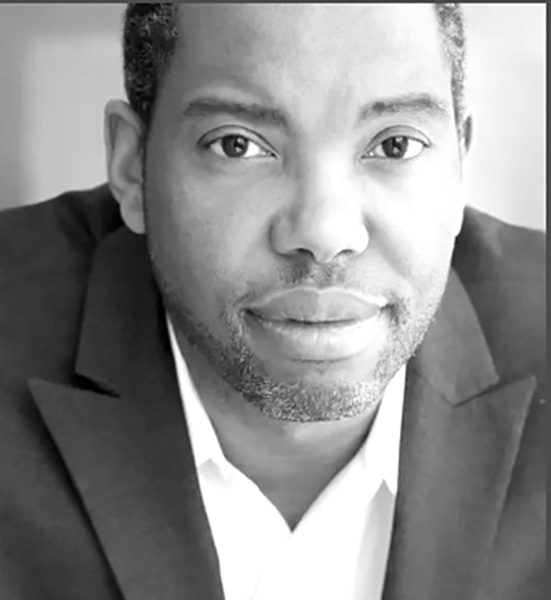Black Arts and Culture
Book Banning Continues To Target Prominent Popular Black Authors
Book banning of prominent Black authors is a growing concern in education. #BookBanning, #BlackAuthors, #Censorship, #Education, #Literature

By Rosaland Tyler
Associate Editor
New Journal and Guide
This past July, Ta-Nehisi Coates traveled to a South Carolina school board meeting to support a Chapin High School teacher who was told to stop using his 2015 book, “Between the World and Me.” According to a school board member, Coates’ coming of age book was banned after a local school board member in February told the teacher that the book made students feel “uncomfortable” and “ashamed to be Caucasian.” The books were collected and the assignment ended.
Tess Pratt, the chairwoman of Chapin High School’s English department, said in recent news reports, “On the day that I took Ta-Nehisi Coates’ books out of the hands of Ms. Wood’s students, I silenced his story. Even though this was a decision that was not mine, I will regret that moment in front of those students for the rest of my life, because it was wrong.”
Coates, who is author of the #1 New York Times best-seller “Between the World and Me,” and winner of the 2015 National Book Award for Nonfiction, was booked recently at the L. Douglas Wilder Performing Arts Center on the campus of Norfolk State University.
His book “The Beautiful Struggle,” has been selected as the NSU Common Reader for all first-year and Transfer students for the fall semester.
Banning of books by prominent and insightful Black authors is being driven across the nation by local school boards, administrators, teachers and politicians, according to a 2021-2022 report by PEN America. Authors who write books about homosexuality and non-White racial experiences are more likely to appear on the book-ban list that gained traction in March 2022, when Florida Gov. Ron DeSantis walked on-stage and hoisted up the book “Call Me Max.” Minutes later, he signed Florida’s “Parental Rights in Education” bill, better known by its critics as the “Don’t Say Gay” bill.
Although Isabel Wilkerson’s second best-seller, “Caste: The Origins of Our Discontents,” spent 55 weeks on U.S. best-seller lists and has sold more than 1.5 million copies, it is currently on a book-ban list.
Wilkerson’s second best-seller, “Caste,” is one of more than 1600 books that have been banned in school districts across the nation, according to PEN. Wilkerson’s second best-seller, “Caste,” examined the caste system in India, Nazi-era Germany and the USA. It was released in 2020, a decade after her first best-seller, “The Warmth of Other Suns,” was released in 2010. Her first award-winning best-seller is about the nation’s Great Migration that ran from 1915-1970. Her first book became an immediate New York Times best-seller when it was released in 2010.
Addressing the ban on her second book, the former New York Times reporter and Pulitzer Prize winning author told Oprah in a recent interview in O Magazine, “We cannot escape our history; it is with us whether we recognize it or not,” Wilkerson said.
“Our inheritance is like a preexisting condition,” Wilkerson told O Magazine. “You can pretend diabetes or alcoholism doesn’t run in the family, but at some point, you will have to deal with it. You must deal with the consequences of history whether you acknowledge them or not. It’s like covering your ears, not wanting to hear what makes you uncomfortable, what threatens you or your place in society – that’s how I look at it.”
The ban list also includes at least four of Toni Morrison’s books. “The Bluest Eye” has appeared several times, in 2006, 2013, 2014, and 2020. “Beloved,” Morrison’s Pulitzer Prize-winning 1987 novel, is also on the 2006 and 2012 lists. And in the mid-1990s, “Song of Solomon” was repeatedly challenged in school districts in Colorado, Florida, and Georgia for “inappropriate” and “explicit” material.
In Oct. 2021, a Virginia mom who tried to get “Beloved” banned from her son’s high school in 2013 was featured in an ad for then-gubernatorial candidate Glenn Youngkin, who made education a core part of his platform. He won the governorship the next month. (In 2016 and 2017, then-Gov. Terry McAuliffe – Youngkin’s opponent in the 2021 election—had vetoed so-called “Beloved bills,” efforts to enable parents to opt their children out from reading sexually-explicit novels at schools.)
Other books are on the ban list: “The Catcher in the Rye,” “To Kill a Mockingbird,” “The Bluest Eye” – and new releases such as “The Hate U Give” and “Thirteen Reasons Why.”
PEN estimates that more than 3,300 books were banned in the 2022-2023 school year, a 33 percent increase from the previous school year. Since libraries and schools buy a massive number of books, the ban is impactful if some of the largest school districts refuse to buy a book. This means the book ban is putting some books out of print.
“In writing Caste, I had to do a tremendous amount of research into India and Germany during the Nazi era,” Wilkerson told O Magazine. “The Nazis studied the United States’ Jim Crow laws in creating the Nuremberg laws. We are coming perilously close to the spirit of what they were doing in another century with the banning of books. It’s revisiting a past that we should never want to experience again.”
Wilkerson added, “Closing ourselves off to information and history is not the solution. We need to overcome our divisions by opening up, not shutting down, discussion.”














